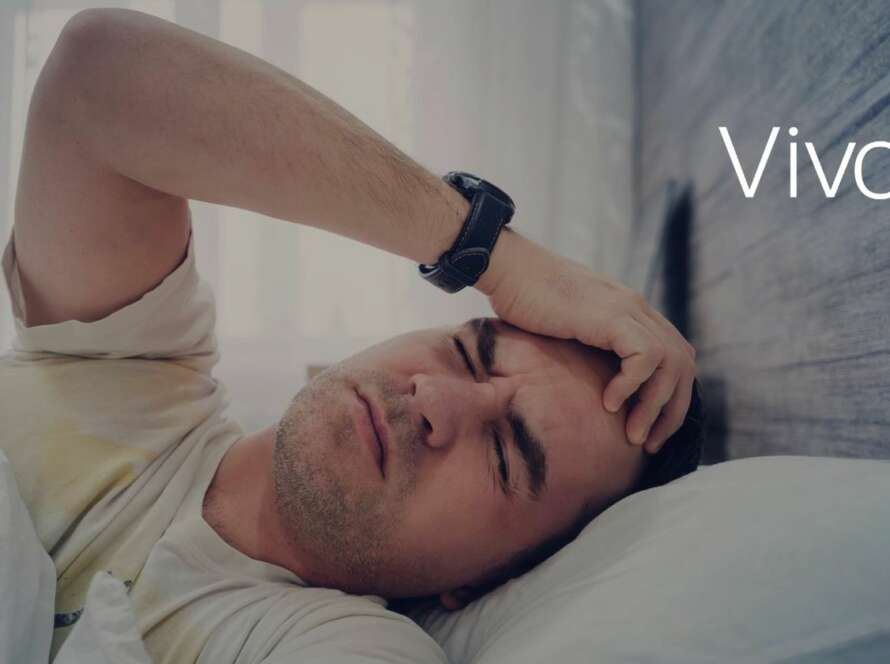Have you ever wondered why some days you feel refreshed and other days you feel like you didn’t sleep at all? The secret lies in understanding the sleep cycle in adults. This cycle includes different stages, from light sleep to deep sleep and even dreamy REM sleep.
Knowing how these stages work can change your sleep and improve your days. This article will dive into what makes up a healthy sleep cycle and how it impacts your daily life. Get ready to unlock the secrets to a better night’s rest and more energized mornings!
The Four Stages Of Sleep
When adults sleep, they go through 4 main stages. Each stage is a part of the sleep cycle, helping our bodies and minds rest and heal.
Stage 1: NREM (Non-Rapid Eye Movement) – Light Sleep
Stage 1 is like the door to sleep. It’s the first step in moving from being awake to sleeping. During this stage, which is light sleep, you can wake up easily. It’s a short phase, lasting only a few minutes.
The Transition From Wakefulness To Sleep
In this phase, you start to relax. Your body begins to slow down, your muscles get less tense, and your heart rate drops. It’s the bridge between being fully awake and sleeping.
Alpha And Theta Brainwaves
Your brain starts to calm down, too. First, it makes alpha brain waves, which are slow and calm. Then, it moves to theta brainwaves.
These are even slower and mean you’re starting to sleep for real. This change in brain activity is a sign that your body is getting ready for deeper sleep stages.
Stage 2: NREM – True Sleep
Stage 2 is when we start real sleep. It’s not just closing our eyes; our bodies begin to rest truly. During this stage, two important things happen:
Body Temperature And Heart Rate Decrease
In this stage, our body starts to cool down, and our heart beats slower. This cooling and slowing are the body’s way of saving energy and taking a break. It’s like when a car idles; it’s still on but not using much fuel.
Sleep Spindles And K-Complexes
These are special patterns of brain activity that happen during Stage 2. Sleep spindles are quick bursts of brain waves that help the brain block out noise, ensuring we stay asleep.
K-complexes are single, big waves in the brain’s electrical activity. They help us sleep and help with memory, like saving important thoughts from the day.
Stage 3: NREM – Deep Sleep
This stage is super important for feeling rested. It’s the deepest form of sleep.
Slow-Wave Delta Brain Activity
During deep sleep, your brain starts to slow down. It produces delta waves, which are large, slow brain waves. This slow-down helps you get a really good rest. It’s the hardest time to wake up because your brain is so far from alert.
Physical And Mental Restoration
While in deep sleep, your body gets busy fixing itself. It heals tissue, builds bone and muscle, and strengthens the immune system. Meanwhile, your brain sorts and stores memories, remembering what happened during the day.
This helps you learn and remember new things. Deep sleep is like hitting the reset button for your body and mind.
Stage 4: REM (Rapid Eye Movement) – Dream Sleep
This stage is special and very active. It’s called REM because your eyes move fast under your lids. It’s the time when you have dreams.
Rapid Eye Movements And Brain Activity
In REM, your brain is very busy, almost like when you’re awake. This is when most dreaming happens. Your body stays still, so you don’t act out your dreams.
Vivid Dreams And Memory Consolidation
Dreams during REM can be clear and feel real. This stage helps your brain remember new things you learned. It’s like your brain organizes and saves important information while you sleep.
The Sleep Cycle Progression
When adults sleep, they go through different stages. This journey from one stage to another and then starting over is called the sleep cycle.
Cycling Through The Stages
The sleep cycle starts with light sleep, moves to deep sleep, and reaches dream sleep, also known as REM sleep. First, your body relaxes, and you enter light sleep.
Next, you go into a deep sleep, where your body repairs itself. Finally, you dream during REM sleep. After REM sleep, the cycle starts again with light sleep.
Average Duration Of One Sleep Cycle
One sleep cycle usually lasts about 90 minutes, but this time can vary from person to person. Adults typically go through several of these cycles each night. The first cycle can be shorter; later cycles can be longer, especially in the REM stage.
Importance Of Completing Multiple Cycles
Going through several sleep cycles each night is important for your health. It helps your body and brain to rest and repair.
Completing multiple cycles can make you feel more rested and help you think clearly. When you don’t go through enough cycles, you will feel tired and have trouble focusing the next day.
Factors Influencing The Sleep Cycle
Many things affect how adults sleep—our sleep cycle changes based on our body clocks, age, and health.
Circadian Rhythm
Your body has a natural clock called the circadian rhythm. It tells your body when it’s time to sleep and wake up. Light from the sun helps set this clock. When it’s dark, your body feels sleepy.
Once your rhythm is off, sleeping can be hard. Try to sleep and wake simultaneously every day to keep your rhythm steady.
Age And Life Stage
As you age, your sleep changes. Young adults can sleep deeply and a lot, while older adults wake up more at night and sleep less deeply.
Life events like having a baby or stress can also change your sleep. It’s normal for sleep to change as you go through different stages of life.
Sleep Disorders And Medical Conditions
Some people have sleep disorders like insomnia or sleep apnea. These make it hard to sleep well. Health problems like pain, heart trouble, or sadness can also disturb sleep. When you’re having trouble sleeping, a doctor can help determine why and what to do.
The Role Of Melatonin In The Sleep Cycle
Melatonin is a key player in how we sleep. This natural substance works like a clock inside our bodies, telling us when it’s time to sleep and when it’s time to wake up.
Definition And Production Of Melatonin
Melatonin is a hormone that our brains make. It is made by a part of the brain called the pineal gland.
Our bodies start to produce more melatonin when it gets dark outside, which makes us sleepy. When it’s light, the amount of melatonin our bodies make goes down, which helps us wake up.
How Melatonin Affects The Sleep-Wake Cycle
Melatonin helps control our sleep-wake cycle. Think of it as nature’s bedtime signal. When melatonin levels go up, your body gets the signal that it’s time to sleep. This helps us keep a regular sleep schedule. Our health needs to have this regular schedule.
Use Of Melatonin Supplements
Sometimes, people don’t make enough melatonin alone, so they have trouble falling or staying asleep. In this case, they can take melatonin supplements.
These are like our bodies’ melatonin, but they come in pills or liquids. When considering taking these, it’s a good idea to talk to a doctor first. They can help ensure the supplements won’t harm other medicines or health problems.
Understanding Sleep Disruptions
When sleep is interrupted, it can make you tired and grumpy. Let’s examine why this happens and what you can do about it.
Insomnia
Insomnia means having trouble falling asleep or staying asleep.
Causes And Symptoms
Many things can cause insomnia. You may feel stressed or drink too much caffeine. Sometimes, it’s hard to sleep because of noises or lights.
When you have insomnia, you can find it hard to fall asleep, wake up a lot at night, wake up too early, or feel tired when you wake up.
Management And Treatment Options
Try going to bed and waking up simultaneously every day to manage insomnia. Make sure your bedroom is quiet and dark. Avoid caffeine and exercise before bed. When these tips don’t help, a doctor can suggest therapy to change how you think about sleep.
Sometimes, they give you medicine to help you sleep better. But trying other things first is usually better because you don’t want to depend on medicine to sleep.
Sleep Apnea
Sleep apnea occurs when one’s breathing stops and starts while one sleeps. This can happen many times each night, and it’s not just snoring; it’s serious.
Impact On Sleep Quality And Overall Health
Sleep apnea can cause frequent nighttime wake-ups, so you need to get enough deep sleep. Poor sleep can also make you feel tired all day.
Over time, if not treated, sleep apnea can lead to other health problems like high blood pressure, heart disease, and diabetes. It can make it hard to think clearly and increase the risk of accidents.
When you think you have sleep apnea, seeing a doctor is important. They can help find the best treatment for you.
Restless Leg Syndrome (RLS)
RLS makes people feel like they have to move their legs, which often causes discomfort in the legs. The need to move can become stronger when resting or at night, making it tough to fall asleep or stay asleep.
Characteristics And Prevalence
People with RLS often describe the feeling as crawling, itching, or throbbing inside their legs.
These feelings can also happen in the arms or other body parts but are most common in the legs. RLS affects both men and women and can start at any age. It is more common in older adults.
Strategies To Alleviate Symptoms
There are ways to help manage RLS and improve sleep:
- Routine: Going to bed and waking up simultaneously every day can help.
- Exercise: Regular, moderate exercise can reduce symptoms, but too much can worsen them.
- Warm Baths: A warm bath before bed can relax the muscles and reduce the urge to move the legs.
- Cut Caffeine: Avoiding caffeine in coffee, tea, and soda can improve symptoms.
- Massage: Massaging the legs can provide temporary relief from discomfort.
Understanding The Sleep Cycle In Adults: Conclusion
Adults go through different sleep stages at night. This includes light, deep, and dream sleep, known as REM. These stages make up a full sleep cycle. Adults must go through several cycles each night for the best rest.
Sleeping 7 to 9 hours helps the body and brain work their best. Adults who sleep well feel better, think clearer, and stay healthier. So, ensuring a good sleep routine is important for everyone.

